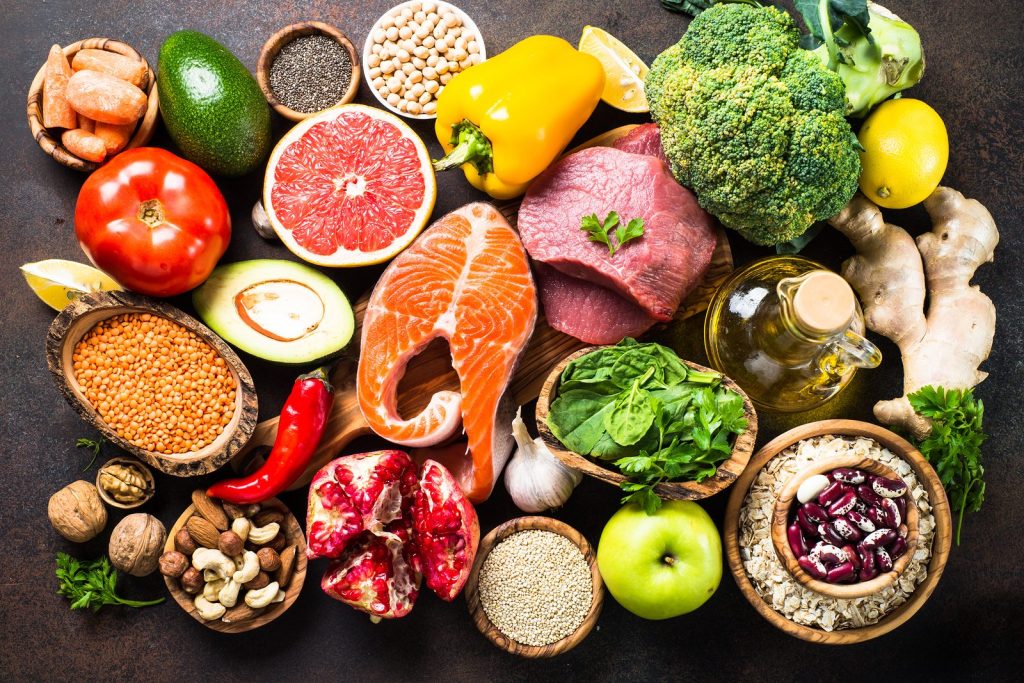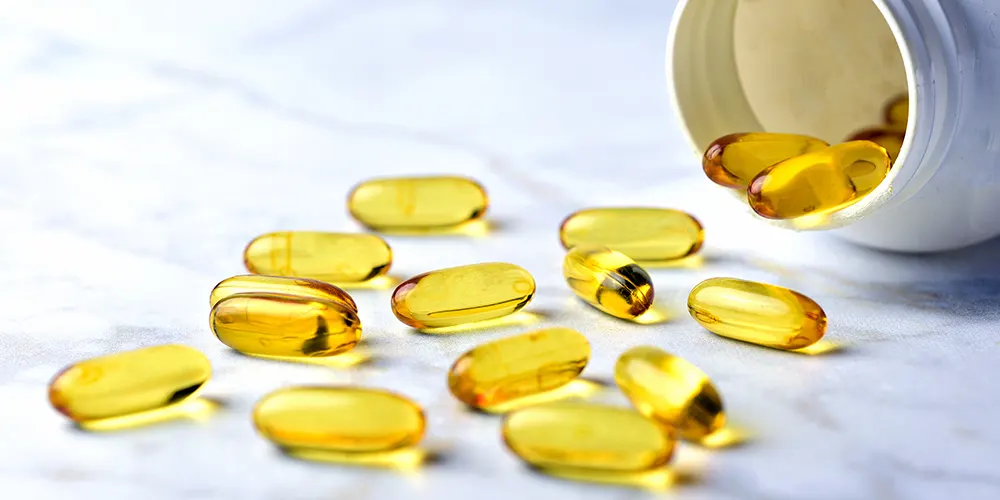A bright, healthy smile goes beyond brushing and flossing. Your diet plays a crucial role in maintaining optimal oral health. Consuming the right foods and nutrients can help strengthen your teeth, prevent cavities, and keep your gums healthy. This guide explores the best foods, essential nutrients, and vitamins for promoting a healthy mouth and preventing dental issues.
Why Nutrition Matters for Dental Health
Your teeth and gums need a variety of nutrients to stay healthy and strong. Poor nutrition can lead to oral health problems such as gum disease, tooth decay, and even tooth loss. By incorporating tooth-friendly foods into your diet, you can support your oral health and overall well-being.
Statistics and Studies on Nutrition and Dental Health
According to the World Health Organization (WHO), poor diet is a significant risk factor for oral diseases. A study published in the Journal of Clinical Periodontology found that individuals with a balanced diet rich in fruits, vegetables, and dairy products have a lower risk of developing gum disease and tooth decay.
Best Foods for Healthy Teeth

1. Dairy Products
Examples: Milk, cheese, yogurt, kefir
Benefits: Dairy products are rich in calcium and phosphates, which help to strengthen tooth enamel and rebuild minerals in your teeth. Cheese, in particular, can neutralize acids in the mouth, reducing the risk of tooth decay. Yogurt contains probiotics that can benefit your gums by reducing the number of bacteria that cause cavities and gum disease.
2. Leafy Greens
Examples: Spinach, kale, Swiss chard, arugula, lettuce
Benefits: Leafy greens are high in calcium, folic acid, and various vitamins and minerals that are essential for maintaining strong teeth and gums. They also stimulate saliva production, which helps clean your mouth. Spinach and kale are particularly good because they are also rich in fiber, which helps to scrub your teeth as you eat.
3. Crunchy Fruits and Vegetables
Examples: Apples, carrots, celery, bell peppers, cucumbers
Benefits: These foods have a high water content, which dilutes sugars and stimulates saliva production. The texture also acts as a natural toothbrush, scrubbing away plaque and food particles. Apples, often referred to as “nature’s toothbrush,” are high in fiber and water, while carrots and celery provide a good source of vitamins A and C, which are essential for gum health.
4. Nuts and Seeds
Examples: Almonds, walnuts, chia seeds, flaxseeds, sunflower seeds
Benefits: Nuts and seeds are rich in calcium and phosphorus, both of which are crucial for strengthening tooth enamel. They also provide healthy fats and proteins that support overall oral health. Almonds, for instance, are low in sugar and high in calcium, making them great for teeth. Walnuts provide a range of nutrients including folic acid, iron, magnesium, and fiber.
5. Fish
Examples: Salmon, sardines, mackerel, trout
Benefits: Fish are rich in omega-3 fatty acids and vitamin D, which help reduce inflammation and support healthy gums. Vitamin D also aids in the absorption of calcium, essential for strong teeth. Fatty fish like salmon and mackerel are also good sources of phosphorus, a mineral that protects tooth enamel.
6. Eggs
Examples: Chicken eggs, quail eggs
Benefits: Eggs are a good source of protein, vitamin D, and phosphorus, all of which contribute to the maintenance and repair of tooth enamel and bone health. They also contain vitamin K, which is important for bone metabolism.
7. Avocados
Benefits: Avocados are rich in potassium, vitamin K, and folate, which support gum health and reduce inflammation. They also contain healthy fats that benefit overall oral health. The creamy texture of avocados makes them easy to eat and gentle on the teeth.
For more on maintaining dental health through diet, visit How to Prevent Tooth Decay.
Essential Vitamins and Nutrients for Oral Health
Vitamins and minerals are crucial for maintaining the health and strength of your teeth and gums. They play a vital role in the formation, repair, and maintenance of oral tissues, and deficiencies in these nutrients can lead to various dental problems. A diet rich in essential vitamins and minerals supports the integrity of tooth enamel, promotes healthy gums, and helps prevent conditions such as tooth decay and gum disease. Below are some key vitamins and nutrients that contribute to optimal dental health and practical ways to include them in your daily diet.

1. Calcium
Sources: Dairy products, leafy greens, almonds, tofu, broccoli
Role: Calcium is vital for maintaining the strength and structure of your teeth and bones. It helps in the formation of tooth enamel and keeps your jawbone strong.
2. Vitamin D
Sources: Sun exposure, fatty fish, fortified milk, supplements
Role: Vitamin D helps your body absorb calcium more efficiently. Without enough vitamin D, your body cannot effectively utilize calcium, leading to weaker teeth and bones.
3. Vitamin C
Sources: Citrus fruits, berries, bell peppers, broccoli, strawberries
Role: Vitamin C is essential for the health of your gums. It helps in the production of collagen, a protein that strengthens the gums and other soft tissues in your mouth. A deficiency in vitamin C can lead to gum disease.
4. Phosphorus
Sources: Meat, dairy, nuts, beans, lentils
Role: Phosphorus works closely with calcium to build strong bones and teeth. It also helps repair and maintain tooth enamel.
5. Vitamin A
Sources: Carrots, sweet potatoes, spinach, apricots, mangoes
Role: Vitamin A is important for maintaining the mucous membranes and soft tissues of the gums. It also plays a role in saliva production, which helps keep your mouth clean.
For more information on the benefits of vitamins and nutrients for your teeth, visit The Connection Between Oral Health and Systemic Diseases.
Tips for Maintaining a Healthy Diet for Your Teeth
- Stay Hydrated: Drink plenty of water throughout the day to keep your mouth moist and wash away food particles.
- Limit Snacking: Frequent snacking can increase the risk of tooth decay. Stick to regular meals and avoid constant grazing.
- Choose Healthy Snacks: Opt for tooth-friendly snacks like cheese, nuts, and raw vegetables.
- Brush and Floss Regularly: Maintain good oral hygiene by brushing twice a day and flossing daily to remove plaque and food particles
Foods and Habits to Avoid
While it’s important to consume tooth-friendly foods, it’s equally crucial to avoid foods and habits that can harm your oral health.

1. Sugary Snacks and Drinks
Examples: Candy, cookies, sodas, sweetened juices
Impact: Sugars can contribute to tooth decay by feeding harmful bacteria in the mouth, which produce acids that erode tooth enamel. Limit sugary snacks and drinks, and always brush your teeth after consuming them. Frequent consumption of sugary foods increases the duration of acid attacks on your teeth, leading to a higher risk of cavities.
2. Acidic Foods and Beverages
Examples: Citrus fruits, tomatoes, sodas, energy drinks
Impact: Acidic foods and drinks can erode tooth enamel, leading to sensitivity and cavities. Rinse your mouth with water after consuming them to minimize damage. Continuous exposure to acidic substances can soften enamel, making teeth more susceptible to decay over time.
3. Hard Foods
Examples: Ice, hard candies, popcorn kernels
Impact: Chewing on hard foods can crack or chip your teeth, potentially leading to fractures or breaks. Avoid biting into hard substances to protect your teeth. A single hard bite can lead to a dental emergency requiring immediate care.
4. Sticky Foods
Examples: Caramel, gummy candies, dried fruits
Impact: Sticky foods can adhere to your teeth, making it difficult for saliva to wash them away. This can lead to prolonged exposure to sugars and acids, increasing the risk of tooth decay. They often get stuck in the grooves of your teeth and can lead to cavities if not cleaned properly.
5. Tobacco Use
Forms: Cigarettes, cigars, chewing tobacco
Impact: Smoking or using tobacco products can lead to gum disease, tooth decay, and oral cancer. Quitting tobacco use is essential for maintaining good oral health. The toxins in tobacco reduce blood flow to the gums, leading to a higher risk of infections and slow healing processes.
For a detailed guide on avoiding harmful dental habits, check out Effective Strategies to Relieve Tooth Pain.
Conclusion
A balanced diet rich in essential vitamins and nutrients is key to maintaining healthy teeth and gums. By incorporating tooth-friendly foods into your daily routine and avoiding harmful habits, you can support your oral health and overall well-being. Remember to stay hydrated, limit sugary and acidic foods, and maintain good oral hygiene practices.
or personalized advice on maintaining a healthy diet for your teeth or to schedule a dental consultation, visit NuSmile Dental Centers. Your oral health is an integral part of your overall health, and the right nutrition can make all the difference.
